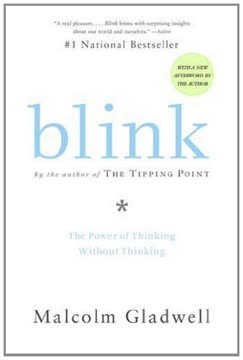重点摘要
1. 成功是机会和传承的产物,而不仅仅是个人的功劳
“换句话说,成功的人最有可能获得那些导致进一步成功的特殊机会。”
《异类》挑战了个人功劳的神话。 成功故事往往忽视了隐藏优势、非凡机会和文化传承的关键作用。这些因素以常被低估或忽视的方式塑造了成就模式。
成功人士受益于累积的优势:
- 家庭背景和人脉
- 资源和教育的获取
- 对工作和成功的文化态度
- 时机和世代位置
本书认为,成功不仅仅是才华或努力的结果,而是多种因素复杂交织的产物,其中许多因素超出了个人的控制。这一观点挑战了读者对成功的假设,并促使他们认识到系统性和文化影响对卓越成就的贡献。
2. 一万小时定律:掌握需要广泛的练习和有利的环境
“练习不是你变好后才做的事情,而是让你变好的事情。”
专业知识需要奉献和时间。 一万小时定律表明,在任何技能领域达到世界级水平需要大约一万小时的专注练习。这一规则适用于各个领域,从音乐到计算机编程。
实现掌握的关键因素:
- 早期接触该技能或领域
- 获取资源和设备
- 家庭、导师或机构的支持
- 专注、刻意的练习机会
然而,本书强调,达到一万小时的练习通常不仅仅需要个人的决心。有利的环境,如比尔·盖茨在1968年获得计算机的机会,在提供广泛练习的机会方面起着关键作用。这突显了个人努力和外部因素在实现卓越成功中的重要性。
3. 文化传承塑造了跨代的态度和行为
“文化传承是强大的力量。它们有深厚的根基和长久的生命。”
继承的文化特质影响成功。 本书探讨了代代相传的文化传承如何显著影响个人对工作的态度、教育和解决问题的方法。这些继承的特质既可以是有利的,也可以是有害的。
文化传承影响的例子:
- 美国南方的“荣誉文化”
- 亚洲学生对数学的态度
- 不同文化对权威的态度
格拉德威尔认为,理解这些文化传承对于解决不同社区内持续存在的成功和失败模式至关重要。通过认识到文化遗产的影响,我们可以更好地理解为什么某些群体在特定领域表现出色,并制定策略克服文化障碍以实现成功。
4. 实用智慧和社交技能对成功至关重要
“没有人能在一年三百六十天每天黎明前起床而不让他的家庭富裕。”
成功需要的不仅仅是智商。 虽然认知智力很重要,但实用智慧——在社交场合中游刃有余并理解他人需求的能力——同样对成功至关重要。这种技能通常通过家庭教育和文化背景发展,可以显著影响个人抓住机会的能力。
实用智慧的组成部分:
- 社交敏锐和人际交往技能
- 适应不同情境的能力
- 有效的沟通和谈判
- 理解和利用社会规范
本书对比了智商极高但难以成功的克里斯·兰根和利用社交技能和文化背景克服重大挑战的罗伯特·奥本海默的经历。这一对比突显了在各个领域中发展认知和实用智慧的重要性。
5. 语言和文化差异影响学习和解决问题
“水稻需要耕种,而耕种涉及大量的湿地和艰苦的劳动。”
语言和文化因素影响认知过程。 本书探讨了语言和文化实践的差异如何导致数学能力、解决问题的方法和整体学业表现的差异。
语言和文化影响的例子:
- 亚洲语言中的数字命名系统促进数学技能
- 对努力和坚持的文化态度
- 水稻耕种对工作伦理和解决问题的影响
格拉德威尔认为,这些语言和文化差异可以在教育和职业环境中创造显著的优势或劣势。理解这些因素可以帮助教育者和政策制定者制定更有效的策略,以支持来自不同背景的学生。
6. 出生时机和世代优势在成功中起重要作用
“我们成长的时间和地点很重要。”
出生时机影响机会。 本书展示了个人出生的具体年份如何显著影响他们的成功机会,特别是在经历快速变化或特定历史事件的领域。
受出生时机影响的因素:
- 获取新兴技术或行业的机会
- 接触经济繁荣或衰退
- 参与关键历史时刻
- 世代规模和资源竞争
格拉德威尔提供了成功科技企业家的出生年份和大萧条对不同年龄群体影响的例子。这一观点鼓励读者考虑更大的历史和社会趋势如何为某些世代创造机会窗口。
7. 有意义的工作和自主性促进动机和成就
“这三件事——自主性、复杂性和努力与回报之间的联系——是大多数人认为工作必须具备的三种品质,才能令人满意。”
工作满意度驱动成功。 本书认为,当工作提供意义、自主性和努力与回报之间的明确联系时,个人更有可能表现出色。这一概念通过各种例子得以说明,包括纽约服装业中犹太移民的成功。
有意义工作的特征:
- 决策的自主性
- 使大脑参与的复杂性
- 努力与结果之间的明确关系
- 创造力和解决问题的机会
通过研究不同类型的工作和对劳动的文化态度如何影响动机和成就,格拉德威尔挑战读者考虑社会结构和工作设计如何促进或阻碍成功。
8. 教育系统和文化态度影响学生表现
“成就是天赋加准备。”
教育成功受文化影响。 本书探讨了不同的教育系统和对学习的文化态度如何显著影响学生表现。这在西方和亚洲国家的数学教育和表现比较中尤为明显。
影响教育成就的因素:
- 对努力和智力的文化态度
- 教育系统的结构和重点
- 家长的参与和期望
- 暑期学习损失和社会经济因素
格拉德威尔研究了像KIPP(知识就是力量计划)这样的项目,试图解决这些文化和系统因素以改善学生的结果。这一分析挑战了关于天赋的传统智慧,并突显了文化背景在教育成功中的重要性。
9. 克服文化和系统障碍需要意识和有意的改变
“文化传承很重要——一旦我们看到了它们的结果,就很难不欣赏我们中的一些人所拥有的巨大优势。”
改变需要认识和行动。 本书总结道,理解成功的复杂因素是创造更公平的成就机会的第一步。克服根深蒂固的文化和系统障碍需要意识和有意的努力来改变。
促进公平成功的策略:
- 认识和解决隐藏的优势和劣势
- 实施提供平等资源和机会的政策
- 挑战关于成功和失败的文化假设
- 发展适应多样背景的教育和职业系统
通过强调成功的复杂因素,格拉德威尔鼓励读者超越对个人功劳的简单看法,考虑社会如何创造更多的广泛成就机会。
最后更新日期:
FAQ
What's Outliers: The Story of Success about?
- Exploring success factors: Malcolm Gladwell examines the various elements that contribute to extraordinary success, arguing that individual talent alone is insufficient.
- Outliers defined: The book defines "outliers" as individuals who stand out due to unique circumstances or opportunities that allow them to excel.
- Cultural and social influences: It highlights how cultural legacies and social structures shape individual opportunities, suggesting success is often a product of collective circumstances.
Why should I read Outliers: The Story of Success?
- Challenging conventional wisdom: The book encourages readers to rethink the traditional notion of the "self-made" individual and the interplay between effort and external factors.
- Real-life examples: Gladwell uses compelling stories and case studies to illustrate his arguments, making the concepts relatable and engaging.
- Practical insights: Readers can gain valuable insights into creating environments that foster success, both personally and for others.
What are the key takeaways of Outliers: The Story of Success?
- Importance of opportunity: Success often results from being in the right place at the right time, as seen in stories like those of Bill Gates and the Beatles.
- 10,000-Hour Rule: Mastery in any field typically requires around 10,000 hours of practice, emphasizing dedication and hard work.
- Cultural legacies matter: Cultural backgrounds and family influences significantly shape individuals' paths to success.
What is the 10,000-Hour Rule in Outliers?
- Mastery through practice: The rule posits that approximately 10,000 hours of dedicated practice are necessary to achieve mastery in any field.
- Not just talent: Gladwell argues that consistent practice and the right opportunities are crucial, challenging the idea that genius is purely natural ability.
- Examples of success: Stories like those of Bill Joy and the Beatles illustrate how hard work and perseverance lead to extraordinary outcomes.
How does Malcolm Gladwell define "outliers" in Outliers?
- Statistical anomalies: Outliers are individuals who deviate significantly from the average, often achieving extraordinary success.
- Cultural context: They are often products of their cultural and social environments, which provide unique opportunities.
- Examples of outliers: The book provides examples of successful athletes, musicians, and entrepreneurs to illustrate how backgrounds and opportunities shape success.
What is the Roseto mystery discussed in Outliers?
- Health anomaly: The Roseto mystery refers to the low rates of heart disease among Roseto, Pennsylvania residents, despite poor diets and lifestyles.
- Community impact: Gladwell argues that the close-knit community and strong social ties contributed to their overall health.
- Cultural legacy: It illustrates how cultural legacies and community dynamics can significantly influence health outcomes.
How does Outliers address the role of culture in success?
- Cultural legacies: Cultural backgrounds shape individuals' opportunities and behaviors, influencing their paths to success.
- Social structures: The importance of social networks and community support in fostering success is emphasized.
- Cultural practices: Specific cultural practices, such as the emphasis on education, contribute to success by encouraging hard work and perseverance.
What is the significance of relative age in Outliers?
- Age cutoffs: Relative age affects success in sports, where players born earlier in the year have advantages due to physical maturity.
- Self-fulfilling prophecies: Early selection and streaming can create a self-fulfilling prophecy, reinforcing advantages for older players.
- Broader implications: This concept extends beyond sports, affecting educational and professional opportunities.
How does Outliers challenge the idea of the "self-made" individual?
- Interconnectedness of success: Success is influenced by a web of social, cultural, and historical factors, not just individual effort.
- Hidden advantages: Many successful individuals benefit from hidden advantages like family connections and educational opportunities.
- Rethinking meritocracy: The analysis questions the meritocratic ideal, suggesting context and opportunity are essential for understanding success.
What are the best quotes from Outliers: The Story of Success and what do they mean?
- “We do owe something to parentage and patronage.” This emphasizes that success is influenced by family background and social connections.
- “Success is the result of what sociologists like to call ‘accumulative advantage.’” It highlights how small advantages can compound over time, leading to disparities in success.
- “The people who stand before kings may look like they did it all by themselves. But in fact they are invariably the beneficiaries of hidden advantages.” This reinforces the idea that success often comes from a combination of personal effort and external factors.
How does Malcolm Gladwell use case studies in Outliers?
- Diverse examples: Gladwell employs a range of case studies, from entrepreneurs to athletes, to illustrate his points about success.
- Real-life implications: Each case study highlights specific factors contributing to success, such as timing and cultural background.
- Engaging narrative: The storytelling approach makes the concepts more relatable and easier to understand.
How does Outliers explain the success of Asian students in mathematics?
- Cultural emphasis on hard work: Success is attributed to cultural legacies prioritizing hard work and diligence, especially in rice farming societies.
- Language advantages: The structure of Asian languages aids in easier memorization and understanding of numbers.
- Longer school years: Longer school years and less vacation time allow for more consistent learning and retention of knowledge.
评论
《异类》探讨了非凡成功背后的因素,挑战了自我成就的观念。格拉德威尔认为,成功取决于机会、文化背景和一万小时的练习。书中通过各种案例研究,从加拿大的冰球运动员到比尔·盖茨,揭示了时机、出生日期和社会优势如何促成成功。虽然一些读者觉得格拉德威尔的叙述引人入胜且发人深省,但也有人批评他选择性地挑选例子和过于简化复杂问题。尽管评价褒贬不一,许多读者仍然欣赏这本书挑战关于成功的传统智慧的能力。
Similar Books























